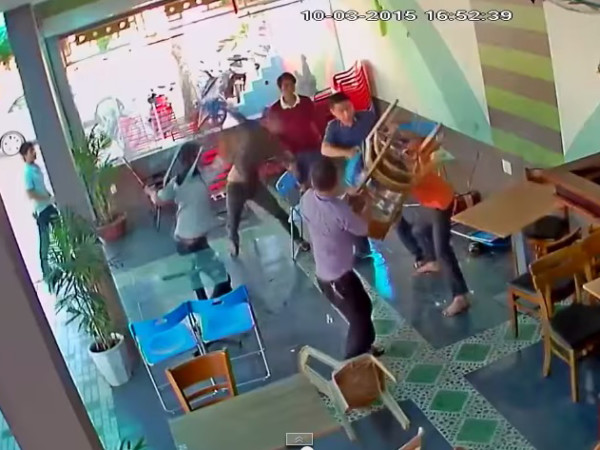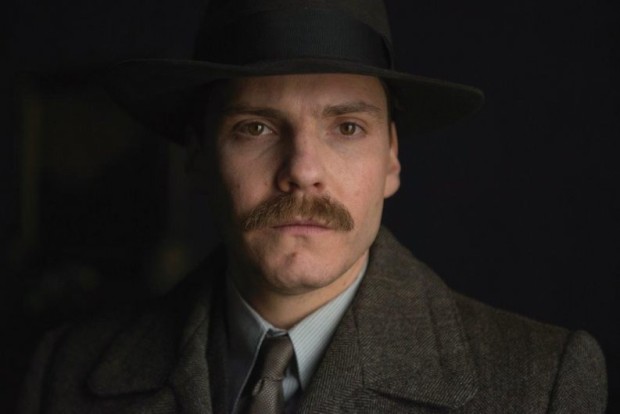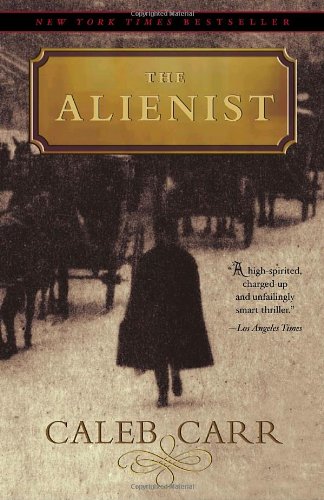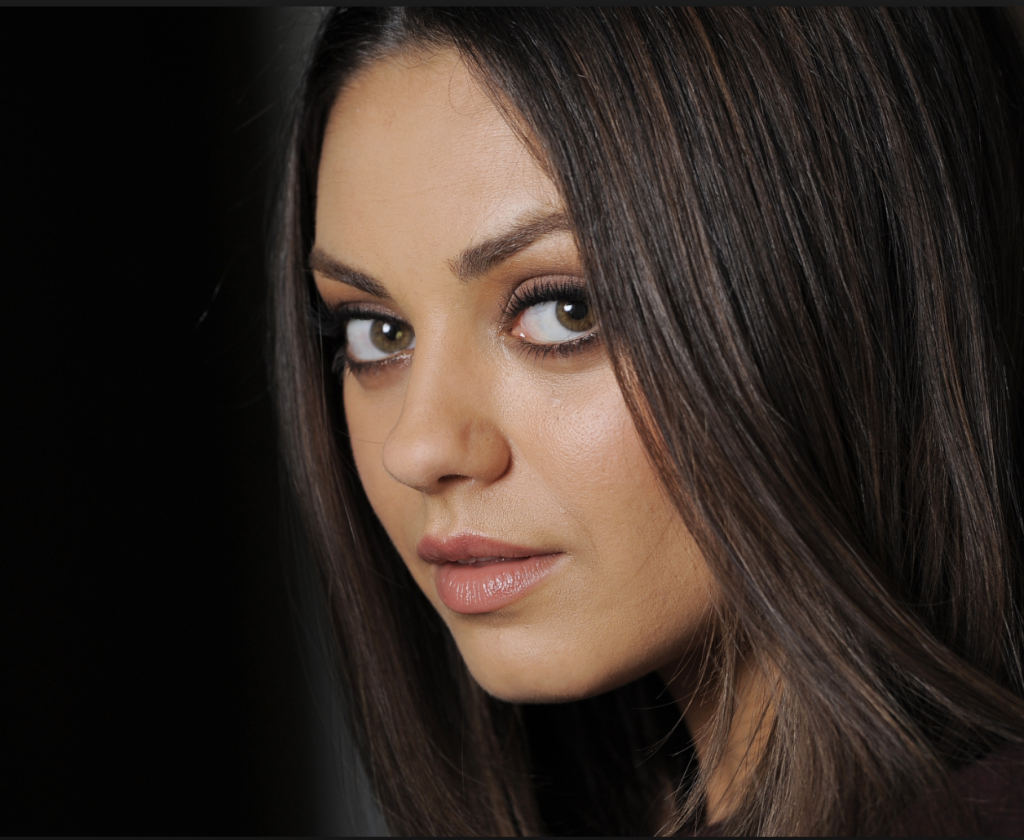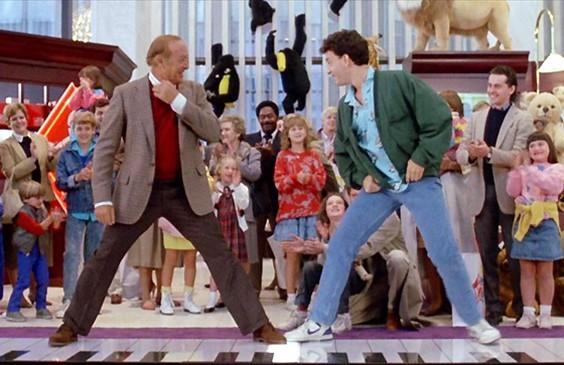SPECIAL SCRIPT CONSULTING DEAL! – It’s the SPRING SCRIPTSHADOW CONSULTING DEAL. I’ll give the 1st, 20th, and 40th writer who e-mail me $150 off a screenplay consultation. E-mail me at carsonreeves1@gmail.com with the subject line “SPRING DEAL.” Your script doesn’t have to be ready yet but you do need to pay to secure the deal. Hope to be reading your script soon!
One of the most heated debates in screenwriting circles is, should you or shouldn’t you outline? Bust that one out in a Los Angeles coffee shop and within half an hour, you’ll have 17 police cars surrounding the place and at least one screenwriter being dragged out of the venue without a shirt on screaming, “He didn’t even understand what an inciting incident was!!” Happens at least once a week in my neighborhood.
I’m a strong believer in outlining, as are most professional writers. I’d say about 90% of working professionals outline their scripts ahead of time. With that said, we are still talking about art here. And there’s no single way to create a work of art. For that reason, if you are anti-outline, I want to share with you the best way to write a script without one.
But before we do that, I want to talk about why professionals prefer outlining. You see, almost every screenwriter starts off thinking outlining is pointless. They write four or five scripts without one before realizing that, wait a minute, you actually spend more time rewriting a screenplay than writing one.
Once you understand that, you ask yourself, “What preventative measures can I take to lessen the amount of rewriting I have on the back end?” They figure out that if they can do more work on the front end, before they write the script, it can actually save them a lot of time when the rewrites start. And hence a belief in outlining is born.
One of the reasons it’s so difficult to write a script without an outline is that while you’ll have a general sense of your story ahead of time (where you want that character death to happen and how that plot twist is going to play out), it’s all very nebulous. And because it’s nebulous, once you start writing, you realize you don’t have nearly as much story as you thought you did. So you add that character death on page 20 and that plot twist on page 30. The next thing you know, you’re on page 45 and you’ve already written down all of your ideas. You’re now staring off a cliff of uncertainty, wondering where to take the story next.
Had you planned for that moment ahead of time, you probably would’ve been able to prevent it. And that’s why outlining is so helpful.
It’s so helpful, in fact, that I’m fascinated with why most beginners are so against it. So I started asking them. At first I got a lot of answers like, “It restricts creativity,” and, “It’s not real writing.” But when I pushed, I realized the answer was simpler. Most beginners don’t outline because they don’t understand the 3-Act structure. How can you outline if you don’t know the structure the outline will be based on??
That, then, becomes our first rule for writing a non-outlined script.
Rule #1: You need to learn as much about the 3-Act structure as possible.
I don’t care if you outline or don’t outline. A script needs structure. You need to be writing towards certain pillars in the story that are only there if you understand how storytelling works. The issue with most beginners is they only see one checkpoint in a screenplay, the end. Understanding the 3-act structure allows you to have multiple checkpoints, breaking the script down into more manageable chunks. The first act is the SETUP and takes up ~25 pages. The second act is the CONFLICT and takes ~50 pages, and the third act is the RESOLUTION and takes ~25 pages. The better you understand structure, the easier it will be to write your script in a non-outlined format.
Now, one of the big advantages to not outlining is that you’ll come up with more creative ideas. When one outlines, they’re looking at the script from a bird’s eye point of view. It’s hard to be creative from that perspective. You come up with your best stuff when you’re in the trenches, seeing the story through the character’s eyes. That’s where those ideas really pop. Which leads us to our second rule.
Rule #2: You must have an active imagination.
If you don’t have an active imagination and aren’t the super-creative type, don’t write a script without an outline. This type of of writing requires that you have a LOT of ideas. Remember, you haven’t mapped out your story ahead of time. You’ll inevitably be hitting a lot of dead ends. So you’ll need a steady stream of creative ideas to keep the story moving.
This leads us to our third rule, which is similar to the second, yet no less important.
Rule #3: Release all judgment.
This is ESSENTIAL to writing a non-outlined script (and when you think about it, it’s essential to writing any script). If you judge your writing when you’re working without an outline, you will bog yourself down and eventually give up. You must release any thoughts of “this isn’t good enough,” as “flow” will be your best friend when you haven’t outlined. Once the flow dies, the script stops. So you don’t want any judgement rearing its head, making your life miserable. Weird idea? Follow it. Bad idea. Take a chance on it. Release all judgement and keep those fingers typing!
Rule #4: Your first draft becomes your outline.
When you get to the end of your non-outlined script, guess what you have? You have your outline! That’s right. When you write without an outline, your first draft becomes your outline. Your job, now, will be to assess what you like and don’t like about your draft, write down the changes you want to make, go write your next draft, and THAT DRAFT will actually be your “first draft.”
As much as I believe outlining is important to writing a professional level script, I understand it has its drawbacks. Outlining can become a reason not to write, as you get bogged down in outline details instead of going in there and doing the actual writing. We’re all different. We all approach our creative process differently. As long as you understand the pros and cons of a method, you can make an educated decision on which option is right for you. If writing without an outline feels like your jam, I’m not going to discourage you from adding it to your sandwich. Just don’t punch the guy sipping the caramel macchiato next to you because he thinks theme is more important than character.
Genre: Drama
Premise: (from Black List) A precocious young writer becomes involved with her high school creative writing teacher in a dark coming- of-age drama that examines the blurred lines of emotional connectivity between professor and protégé, child and adult.
About: If you weren’t paying attention, you may have missed Jade Bartlett’s script, which appeared near the bottom of last year’s Black List. Bartlett started as a playwright and occasionally acts, grabbing a bit part in last year’s, The Accountant. She’s looking to direct Miller’s Girl as well.
Writer: Jade Bartlett
Details: 121 pages
One of the things I’ve been struggling with lately is the balance between reality and cinematic license. Movies are a heightened version of reality and are therefore subject to a different set of rules than real life. A common example is that old movie setup of the directionless loser grabbing the attention of the hottest girl in town. Sometimes audiences just go with that stuff.
But I don’t see this as an excuse to completely ignore reality. Storytelling is still subject to suspension of disbelief. If your characters start doing or saying things that are too far removed from the realm of believability, the reader/audience will feel the writer’s hand, pull out of the story, and begin to observe it from the outside as opposed to where they should be observing it, which is from inside.
For example, I was originally going to review a script called “Coffee and Kareem” today, another Black List script about a 9 year old boy who teams up with a cop to take down a drug lord. It starts off funny, but at a certain point, the boy is joking about extremely advanced sexual situations that there’s no way a 9 year old boy would a) know about or b) care about. I’m talking: “As I suck the meat off yo clit, won’t stop till ya squirt” level situations. The writer went too far off reality’s path and the suspension of disbelief was broken.
Miller’s Girl never goes that far. But the script is a strange one, skirting that line so sharply that it was hard to take what I was reading seriously all the time. With that said, Bartlett’s unique voice and almost magical mastery of the English language ensures that Miller’s Girl is a rewarding experience.
Awkwardly pretty Cairo is a gifted 17 year-old writer. Her new high school creative writing teacher, Jonathan Miller, used to be a writer, but has since regressed to the point where he hasn’t written a word in years, hiding behind his teaching job as the reason he no longer pursues the craft.
Miller immediately recognizes how talented Cairo is, and the two start hanging out with one another after class, trading the occasional quote and seeing how long they can quip each other before someone says, “touche.” Needless to say, Cairo starts to become fascinated with Miller, and looks for more opportunities to spend time with him.
Meanwhile, Miller’s best friend and fellow teacher, Boris, has his eye on Cairo’s best friend, the gorgeous Winnie. Whereas Cairo is cerebral, Winnie is all about the physicality. And when she picks up on Boris’s interest in her, she milks it for every ounce it’s worth, basically broadcasting that he can fuck her any time he wants.
Things get complicated when Jonathan assigns Cairo to write a short story and Cairo writes up a Hustler article about a teacher who seduces a student. Horrified, Jonathan tells Cairo to destroy the story and reminds her that they are only friends. Feeling rejected, Cairo instead gives the story to the principal, resulting in a series of events that may destroy Jonathan’s career, and with it, his life.
First of all, there is no doubt that Bartlett is a gifted writer. I mean, when you read this, you will immediately notice the limitations of your own intellect. The woman is a wordsmith who has few equals.
But here’s what I mean about reality. Most of the conversations here, particularly the ones in the first half of the script, reek of a writer showing off her skills rather than one who’s trying to write the best story.
There are a lot of lines like this one: ”Can you keep a secret?” “I’m keeping Victoria’s in my pants. Does that count?” And while, on their own, these lines are harmless, when they’re strung together with 50 other variations of the same exchange, they stop feeling like real people and start feeling like, “Check out my dialogue skills, bitches.”
On top of that, there are moments where both our male teachers and 17 year old female students are hanging out before class and Boris will say to the girls something like, “So did you get laid last night?” I know I haven’t been in high school for awhile. But doesn’t that kind of question get you fired these days? When people say and do things that aren’t realistic, it’s inevitable that the reader will be pulled out of the story.
After I finished the script, I found out that Bartlett is also a playwright, and that made sense. I know dialogue is a big focus in playwrighting and that the idea is to go bigger and snappier. So maybe that explains some of the more outrageous dialogue. But in screenwriting, you have to watch out for that.
And, see, that’s the thing. When this script got really good is when it dropped the pretense and focused on the conflict. The best scene in the script happens on page 74 when Jonathan confronts Cairo about her short story.
Gone are the quips, replaced by a genuinely intense conversation. Every word matters. If Jonathan isn’t clear to Cairo that there’s nothing between them, he could get in some deep shit. But if he goes at her too hard, she could get upset and fuck him over anyway. So it’s a very delicate balancing act that goes to show – genuine conflict and drama is always better than trying to force something out of nothing. If you go into a scene without clearly understood directives from both characters, you’re going to be flailing around like a fish, inevitably trying to dress up a body that isn’t there.
It shouldn’t be a surprise, then, that that’s when Miller’s Girl really picked up. Things get dark fast and this script leaves you with a number of feelings – anger, frustration, confusion – that you don’t typically get from a read. Whereas Bartlett struggles to keep things truthful, she excels at coming up with situations that there are no simple answers for.
The hardest scene for me to read was Jonathan’s scene with his bitch wife after he’s been suspended. Holy shit was that intense.
If the same sort of truth and genuine conflict used in that scene could’ve been used throughout the first half of the script, this would’ve gotten an “impressive.” Still, while flawed, it’s a script that stays with you. And we all know how rare that is to find.
[ ] What the hell did I just read?
[ ] wasn’t for me
[x] worth the read
[ ] impressive
[ ] genius
What I learned: Playwrights moving to screenwriting – You have to expand your scope. While reading this, I didn’t get any sense of the school at all. This is likely because, as a playwright, you don’t have to worry about those things. But as a screenwriter, even though your focus will be on a handful of characters, you want to bring more of your surroundings in. We need to see other classes, meet other students, feel like there’s a real world to explore here. When your scope is too narrow, something will feel off about the story that the reader can’t articulate. That’s usually it. Bring in the rest of your world and the problem will be solved.
What I learned 2: The word “vituperation,” which means “bitter and abusive language.” I have never, in the 7000 scripts I’ve read, come across that word before. Your mission, should you choose to accept it, is to casually drop the word “vituperation” into conversation today and not get called on it. Let us know how it went in the comments!
A period serial killer piece from the writer of Drive and the director of True Detective? Sign me up!
Genre: TV Pilot – Serial Killer
Premise: When a boy prostitute is brutally murdered in 1896 New York City, an “alienist” – a special type of doctor who studies mental pathology – attempts to find the killer.
About: The pilot for today’s show comes from powerhouse artists Houssein Amini (Drive), Cary Fukunaga (True Detective), and Eric Roth (Benjamin Button). It will star Daniel Bruhl (Inglorious Basterds), Luke Evans (The Hobbit), and Dakota Fanning. The show is based on the novel by Caleb Carr. The show will surprisingly air on TNT, which realizes that if it wants attention, it needs to get into the premium television business.
Writer: Houssein Amini (adapted from the novel by Caleb Carr)
Details: 66 pages
We’re in an interesting time with television. It reminds me of the reality TV craze that hit in the early 2000s where anybody who ended their pitch with “and it’s a reality TV show,” would get their show on the air.
But then, after 10,000 terrible reality TV shows hit the air, the ratings dried up, and no one was sure what to do anymore. Eventually much cheaper productions moved to ancillary channels. But for awhile there it was touch and go on what would happen with the format.
Right now there are SO MANY FREAKING SHOWS spread across SO MANY CHANNELS that casualties are a foregone conclusion. There just aren’t enough eyeballs to watch everything. And even when there are, you have to first find the shows, then find out where they’re on, then find out when they’re on. And how do you do that when all the high profile shows are saying, “Look over here instead!!”
You have guys like Matthew Weiner making some bonkers mega-budgeted show on Amazon. You’ve got the Tom Hardy show, Taboo, which is good, but the average viewer has no idea what it’s about. You’ve got this misconceived Ryan Murphy’s show, “Feud,” which is a 90 minute movie at best being stretched into a season of television. You’ve got award winning shows like Atlanta, yet I haven’t met a single person who’s actually seen it.
The Alienist fits into that mold. You have really smart creative people making this show. But it’s so dark and so intense, that to stand out amongst this endless list of competition is going to be darn near impossible unless the show is great.
So, is the show great?
Well, I know one way to find out.
Local newspaper reporter John Moore has been sent to check out a gruesome murder at the unfinished Williamsburg Bridge. “Unfinished” because this is 1896 New York. I’ll tell you who is finished though. The prostitute boy who’s been sliced open and had his eyes gouged out.
Moore, horrified by this sight, is only able to recover once his friend, Lazlo Kreizler, enters the fray. Kreizler is a new breed of psychologist called an “alienist,” whose main job it is to decide whether criminals are sane enough to be punished for their crimes. But Kreizler’s talents will have to be used for something far greater – catching a killer.
The two are indirectly helped by Theodore Roosevelt. That would be POLICE COMMISSIONER Theodore Roosevelt, in the job he held before racing up the political ladder. Roosevelt is a bit of a forward thinker, even hiring a young woman, Sara Howard, to work at the precinct – something that was unheard of back in the day.
Roosevelt realizes that this killer is way beyond anything the police force has dealt with in the past. But he also knows that if he allows an alienist on the case, he’ll be seen as a fool. So he assigns Kreizler and Moore to find the killer on the down low.
While Moore is more of an observer, Kreizler is the kind of bizarre soul who keeps jars of fetuses in his office. Of course, they’re going to need that bizarreness to take down the single most perplexing serial killer New York has ever seen.
A question I’m often asked is: What are differences between an amateur writer and a pro writer? Writers feel that if they can work off a defined set of rules, they can mirror what the pros do.
Unfortunately, it’s not that simple. As an amateur writer, you don’t know what you don’t know what you don’t know. I can tell you that the plot choice you made on page 54 doesn’t fit, tonally, with the rest of the script. Or that the supporting character you like so much is redundant. Or that the majority of your scenes don’t push the plot forward. But you don’t see that. To you, all of those things make total sense. And they’ll continue to make sense until all the mysteries of screenwriting open up to you, something that only happens by writing script after script after script, by reading script after script after script.
When you read a pilot like The Alienist, you are seeing a professional writer who knows this medium inside and out. The attention to detail here is as impeccable as Mozart concerto. The research of this period is as good as an historian’s. And the writing itself has a sophisticated edge to it. For example, we get this line: “The murdered boy kneels in supplication, the falling snow settling on his long hair and blood soaked dress,” instead of this one “The dead boy lays there, mangled and bloody.”
I also find that pros tweak a familiar situation so that it’s not quite like what we’ve seen before. For example, a common scene I run into is the john hiring the prostitute, and then, to show that our john is “likable,” he stops the prostitute from trying to have sex with him and, instead, “just wants to talk.” Fucking kill me if I ever read that scene again.
But anyway!
We meet John Moore with a prostitute and, as he’s having sex with her, he’s angry because she’s telling him that she’s in love with another man. At that moment, the madame bursts in and the girl “drops the act.” It was all a little game they were playing.
It was a small thing but the point is, I’ve read a lot of prostitute scenes, and the fact that the writer gave me one that I hadn’t seen before is what separates him from the standard amateur.
But the place where professionals really separate themselves is in the characters. They create characters who are complex and different. I’ll give you guys a little tip here to help you get closer to these million-dollar-a-project screenwriting studs – create characters with CONTRAST.
So here you have Lazlo Kreizler, who is into some really dark disturbing shit. As I mentioned before, he keeps fetuses in his office. And yet he’s always happy, always having fun. That contrast between the light and the dark is what makes the character interesting to watch. If Kreizler was into dark shit and he was also really depressed, his character would seem on the nose, or worse, boring.
That’s not to say you can’t create characters who are of one mind. You could argue that Rust Cohle from True Detective was into dark shit and also acted dark. What I’m saying is, contrast is an easy hack you can use to make a character pop.
And, actually, that’s my only complaint with The Alienist, is that the character of John Moore doesn’t have enough going on. Not as much time was put into him as was Kreizler. To be honest, I don’t even know why he’s in the story. Why would the police force, or even Kreizler, want a journalist hanging around? Isn’t that the opposite of what you want? Someone who might blab about your investigation to the local paper?
It would’ve been more interesting to pair Kreizler with the lone woman at the precinct, Sara Howard. At the time, women were barely allowed inside a police department, nor were they allowed to be exposed to gruesome murders. Imagine the conflict involved with her co-heading up this investigation with weirdo Kreizler.
Whatever the case, The Alienist should pull in people who liked that first season of True Detective. It’s just as dark, if not darker, than that beloved show.
[ ] What the hell did I just read?
[ ] wasn’t for me
[xx] worth the read
[ ] impressive
[ ] genius
What I learned: You change the eyes, you change the view. One of the best ways to breathe new life into familiar situations is to change the eyes through which we’re experiencing those situations. If you give us a murder investigation through the eyes of a cop, you’re giving us the same thing we’ve always seen. But if you give us a murder investigation through the eyes of an alienist, now the exact same situations feel different. That’s because an alienist has a different set of objectives. They have a different set of criteria for why they do what they do. So the next time you come up with an idea, ask yourself how that idea changes depending on whose eyes you explore it through. You may find that a character you didn’t think twice about actually has the most compelling POV on the matter.
Genre: Action-Comedy
Premise: After learning her dead boyfriend was a secret spy, a supermarket cashier and her weird best friend attempt to finish his last mission.
About: This script just went through a bidding war with Lionsgate surprisingly coming out on top (Lionsgate makes comedies now?). It will star Bad Moms breakout Mila Kunis, along with the uber-polarizing Kate McKinnon, in the team-up. The film will be directed by Susanna Fogel, who created the television show, Chasing Life. The script was written by Fogel and David Iserson, who’s been writing for TV since the early 2000s. He wrote on SNL, New Girl, Mad Men, Mr. Robot, and Mozart in the Jungle.
Writers: Susanna Fogel & David Iserson
Details: 117 pages – First Draft
The comedy genre is in a weird place. Whereas a decade ago, you could count on a comedy being one of the top 5 box office performers of the year (The Hangover), now the top-performing comedies are lucky to finish in the top 20.
Last year, for example, the top comedy films were Central Intelligence (no. 22) and Bad Moms (no. 25). The year before that it was Daddy’s Home (no. 22) and Spy (no. 27). I know, right? A lot of people assumed Spy bombed. Yet it was the second biggest comedy of 2015!
And this is for a lot of reasons. Comedies don’t perform internationally, so studios don’t care about them as much. Spectacle films are becoming a jack-of-all-trades, offering plenty of laughs along with their action. And between the explosion of television and the quick fix that Youtube provides, laughs are easier to come by than ever. You don’t need to block out an entire Friday evening for them anymore.
What does this mean for you, the comedy screenwriter?
Good question. I don’t think the business has course-corrected to this reality yet. It’s business as usual, with the only tweak being a bigger focus on female-centric comedies. We need some fresh thinkers to come along and shake things up, like what Sacha Baron Cohen did when he dropped the Borat bomb on us.
With that said, coming up with a genuinely funny concept is a great place to start. I still think a super-clever premise like The Hangover would do gangbusters business. Is “The Spy Who Dumped Me” in the same clever neighborhood? No. But it’s not bad. Let’s see how it fared.
27 year-old Audrey is pissed off that she’s working at Trader Joe’s three years longer than anyone her age should be working at Trader Joe’s. She wants to get her life started but a recent dumping by her boyfriend, Drew, hasn’t exactly motivated her to kick life’s ass.
Audrey’s weirdo best friend, Morgan, is one of those girls whose parents told her she could be anything she wanted and has parlayed that mindset into pursuing the lucrative market of performance arts.
On her 1 year anniversary of meeting Drew, Audrey is approached by a cute British guy named Sebastian who tells Audrey that Drew is a spy and he needs to know where he is. Audrey doesn’t know, but later that day, Drew shows up to get his stuff, only to be assassinated right in front of Audrey’s eyes. With his dying breath, Drew gives Audrey a jump drive and tells her to deliver it to a guy in Austria or really bad things will happen.
Audrey doesn’t want any more blood on her hands than the blood from her dead boyfriend that’s on her hands, so she recruits Morgan, who’s more than happy to play spy, and the two fly to Austria. But once there, they realize they’re in way over their heads, and a cacophony of John Wick level assassins are quickly on their tail.
They eventually meet up with Sebastian again, who Audrey’s starting to like, and attempt to figure out what the data on the jump drive means. Just when Audrey thinks this whole thing will finally be over, she’s confronted with a shocking revelation that throws everything up in the air.
How long can a jump drive last in someone’s vagina? Can Sebastian be trusted? Why is Morgan so obsessed with uncircumcised penises? Hopefully these questions will be answered soon. Or else our amateur spies will end up professionally dead.
One of the commonalities I’ve found with these big idea professionally scripted comedies is that they’re always impeccably structured. The writers clearly understand plotting and how to keep the story moving in a fun way.
But that also becomes the script’s big weakness. They’re so beholden to getting that structure down that the script ends up winning the Screenwriting 101 Structure Contest, but losing the Funny Competition.
It’s weird because on the flip side you have Judd Apatow. That dude could give two shits about structure. He’d make 4 hour comedies if studios would let him. Yet he’s able to find these occasional gem moments that are really funny, even if you had to sit in the theater way too long to get to them.
So the question becomes, which approach is better?
I think you know the answer. The ideal situation is to do both. You want to keep that plot moving, but not so quickly that it mitigates those all important belly laughs. Because that’s why we’re here. To laugh.
The unique challenge with a movie like The Spy Who Dumped Me is that it’s going to market itself as a comedy but it’s beholden to the rules of an action spy flick. And the number one rule with those is to keep the plot moving very quickly, like a Bourne film. That’s why I expect there aren’t as many laughs here as there need to be (yet). They never slow down to have them.
The only times I’d laugh were throwaway lines or the occasional zinger. In comedy, you need those memorable hilarious set pieces, like opening up the trunk of your car to see a batshit crazy naked Asian man go bananas on you. And while we had set pieces here, they were either too familiar or too plot-driven.
For example, the first goal in Audrey’s mission is to meet a guy at a cafe in Austria. So we have a potentially funny set piece scene here. Audrey can try to play the tough cool-as-ice spy (exactly the opposite of who she is) as she makes the hand-off, while Drew’s contact senses something is way off about this bumbling girl who’s anything but a spy.
But the scene is played more like an action movie. She sits down. She talks to someone. We get the sense that the someone she’s talking to isn’t the right person. And then all hell breaks loose with guns and yelling and running oh my. Likewise, most of the movie’s laughs are derived from “in over her head” moments of guns being fired and Audrey being like “Oh shit!” before barely getting away with her life.
Which is fine. Those scenes make sense in a movie like this. But that can’t be all you depend on. One of the most important rules of writing comedies is meticulously figuring out everything that’s unique about your concept that you can exploit for comedy. That gives you a variety of comedic set pieces to play with so you don’t have to keep going back to the same joke.
For some reason, we don’t do that anymore. The reason that Big is still a classic today is because it did that better than any comedy ever. It exploited its premise in a variety of ways. There weren’t any scenes in that movie that felt the same. Which is the opposite here. Every scene feels the same.
I do want to reiterate that there is skill on display in this script. While it missed the mark for me, it’s still waaaaaay better than the amateur comedies I read. Like way way better. Come to think of it. Comedy is probably where the biggest disparity is between professional and amateurs. It’s so hard to be funny within the confines of the stuffy screenplay rules.
Maybe that’s why when I read a script like The Spy Who Dumped Me, I’m so hard on it. It’s gotten itself to a level that most comedy writers will never get to. And that’s why you’re so upset that it doesn’t offer more.
[ ] What the hell did I just read?
[x] wasn’t for me
[ ] worth the read
[ ] impressive
[ ] genius
What I learned: Studios are currently favoring comedies with an action slant since they’re easier to sell globally. I still say write the best comedy concept you can come up with. But if it has an action slant, all the better.
Genre: Fantasy
Logline (from writer): A team of Victorian monster hunters must save the universe from their biggest threat yet, themselves.
Why You Should Read (from writer): I’m a Benihana chef, mandolin player and a broke as a joke screenwriter living in LA now for two months shy of a year and I’ve written about 10 screenplays. I’ve got about thirty dollars in my bank account so there’s not much there to submit this screenplay to a formal contest which sucks, but I’m living the dream…which is cool. It would be very helpful if you would review it so I could know if I was heading in the right direction and if my diet of peanut butter jelly sandwiches in front of my computer monitor is paying off.
Writer: Kathryn Whipple
Details: 106 pages
Okay, before we get to the script, let’s talk about this logline. I’ve been reading lots of loglines for the shorts contest and it continues to be a destination of disaster for aspiring writers.
Everything about this logline works until you get to the word, “from.” “…from their biggest threat yet, themselves.” The best way to describe that ending is that it doesn’t clarify what the movie is about. And what did we just talk about yesterday? Making sure the concept is clear!
Now, after reading the script, the logline does, in fact, make sense. But that’s the problem. It only makes sense AFTER you’ve read it. The point of a logline is to tell us what the script is about BEFORE we read it.
In this case, “themselves” refers to our protagonists’ doppelgangers, who travel through a rift and try to kill our heroes. So, we need to clarify that in the logline. Therefore, the logline should look more like this:
A team of Victorian monster hunters must battle a group of doppelgangers who invade our planet on a mission to destroy our universe.
Now, the question is: Is that premise any good? That’s something I’ll answer after the plot summary. But the point is, that’s the real premise you’re working with, so you have to be honest about it and include it in the logline. You can’t be coy.
England. 1850. It’s the Victorian era. Reason to be optimistic. Except for the monsters that keep popping up through inter-dimensional portholes threatening to kill everyone. If only there was someone to combat these monsters.
That’s where our team comes in. There’s the gorgeous Baroness Whitetower, our de facto leader, the monster-fighter on the rise, Victoria, and finally the always serious, Gunner, who doesn’t get rattled no matter how big the monsters get.
These guys can easily take out a 150 foot caterpillar in a couple of hours. But here’s where things get tricky. They don’t want to kill these monsters. They want to send them back where they came from. This requires a complicated method of creating a rift in the space-time continuum and pushing them back through that rift so they can go back to their parallel world of origin.
All of this is going gorgeously until the police arrest the Baroness for all the destruction she’s caused around town (they have no idea what this destruction was in service to, of course). That’s followed by a new rift opening and – get this – the EVIL REPLICA versions of our monster killing crew arriving.
These folks aren’t nearly as friendly, and inform us that they’re here to destroy our universe because if they don’t, the universes will start collapsing in on each other.
The doppelgängers bring with them many rifts from many different universes, all spewing about fresh monsters of every conceivable disposition, making our crew’s mission of taking out their doubles all the harder. Will they do it? Or is our universe doomed for collapse?
So this is what I was getting at earlier. On the one hand, you have a team of Victorian monster hunters hunting monsters. That’s pretty cool, right? However, halfway into Rift, that isn’t what our script is about. It’s now about a group of evil doppelgängers using the rift-system to travel to parallel universes and extinguish them.
That’s not a bad idea. But it’s not really what we were promised, was it? You could argue that our doppelgängers do open up rifts from which new monsters do arrive and must be fought off. But, ya see, by adding the doppelgänger element, you’re essentially doubling up your concept. You now have two concepts competing for the same movie…
Concept 1: Victorian monster hunters taking on monsters.
Concept 2: Space-time continuum protectors who must fight their parallel universe doubles.
The reader’s like, “Wait, which movie am I watching here?”
Luckily, the solution to this is rather simple. Drop the doppelgänger element. You can still have someone come through the rift and threaten our group, but make him a normal villain, not a double. That way the focus can be squarely on the monster element, which is the bigger sell here.
As for the script itself, I thought the execution was okay, if a little scattered. In the attempt to add character depth, we lost sight of prize. Case in point, when Whitetower gets back from the opening monster battle, she’s greeted with a 16 year-old nephew she didn’t know she had.
This nephew, Everett, is hers through her dead sister’s husband, Cal, a man we just met moments ago once we arrived home, who also seems surprised to learn he has a nephew.
I don’t know about you, but why would I care about the nephew of the main character’s brother’s dead wife, a man who wasn’t even important enough to be on the opening monster killing mission? It was an odd character to spend so much time working into the story.
Speaking of, there wasn’t that one character who stood out. That wasn’t through lack of trying, but I almost felt like more of a “hero’s journey” approach was needed here, where you bring in a “chosen one.”
Instead of having Victoria be a well-established member of the crew, why not make HER the “Everett” of the bunch. Whitetower and their crew get home after the opening battle and Victoria, reimagined as a nervous 18 year-old, is waiting on the doorstep. And instead of making her someone’s cousins’s brother’s half-sibling’s son, make it simple: she’s Whitetower’s daughter.
She’s then taught the ropes and becomes an integral part of taking down the Rift-jumping evil villain. That’d be how I’d approach it, anyway.
Finally, I thought the second act was too short. I consider the beginning of the third act to be the opening up of all the rifts with all the monsters needing to be fought off, and that comes at the midpoint of the script, giving us 55 pages of battle. That’s too long.
The better approach would’ve been to have a single rift open up at the midpoint with a rather nasty monster that they’ve never seen before needing to be killed, and then the threat of multiple rifts opening later on, which would happen at the end of the second act, leaving the entire third act to be our “one giant battle.”
The big takeaway here, though, is that this concept’s strength is its monsters, not its doppelgängers. So that’s where I’d focus the story if I were Kathryn.
Screenplay link: Rift
[ ] What the hell did I just read?
[x] wasn’t for me
[ ] worth the read
[ ] impressive
[ ] genius
What I learned: Unnecessarily complicated familial ties having major story implications is always a lose-lose. If you’re going to bring a major character into the story, try to make the familial connection as straight-forward as possible. A son. A daughter. No half-nephews or twice-removed uncles. I suppose if Cal was the main character here, Everett would make more sense. But Cal is some afterthought who wasn’t even on the original mission. So he feels as peripheral as peripheral gets.

